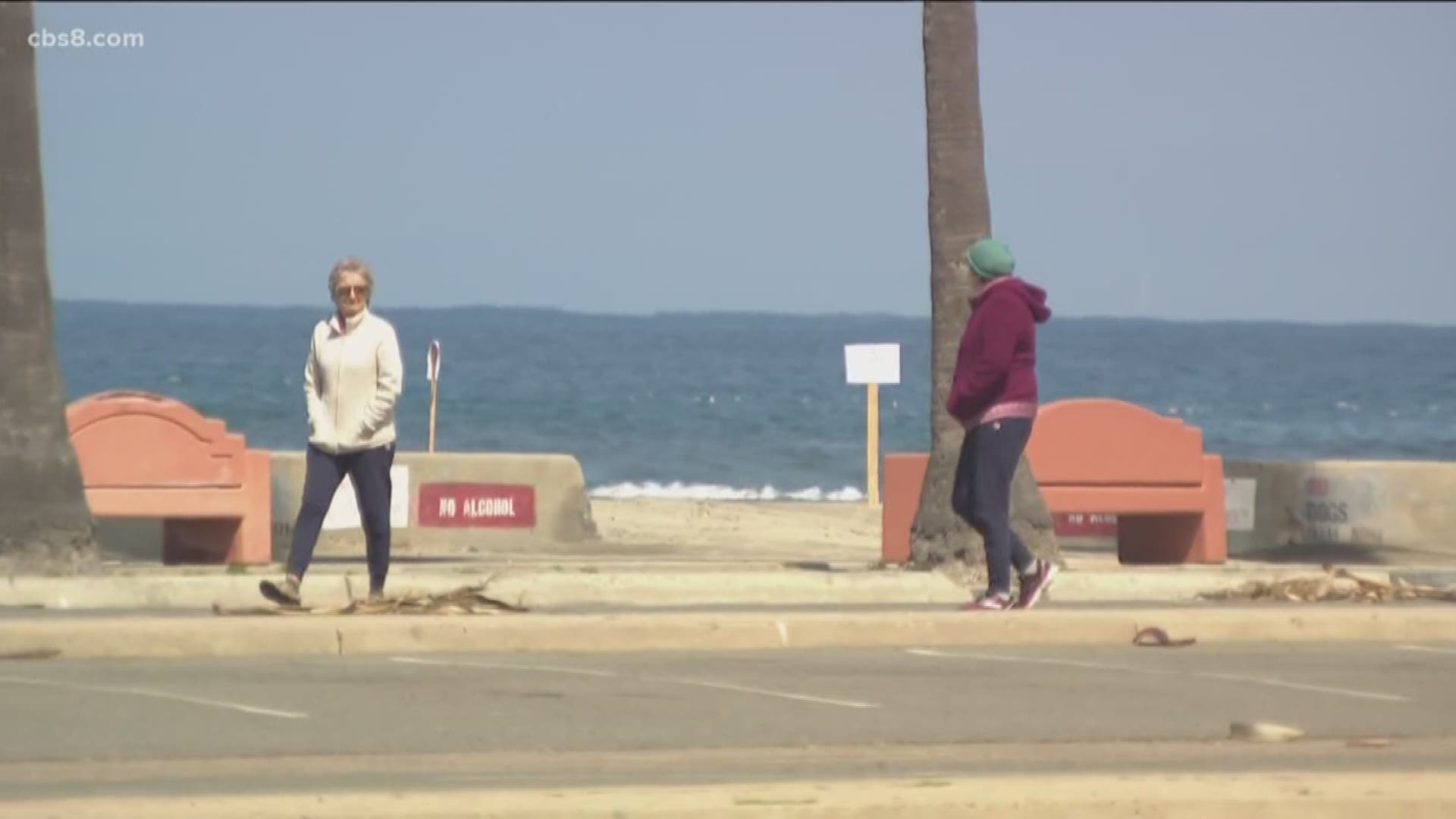SAN DIEGO COUNTY, Calif. — A full beach closure is now in effect in Oceanside to enforce the San Diego County public health order to follow social distancing.
The order went into effect Friday at midnight. Oceanside and Coronado were the last cities in San Diego County to put a full beach closure in place.
Patrol, baricades and beach closure signs are what residents will see if they head down to the coastal area.
County health officials revised the public health orders Thursday, which also shut down park and beach parking lots throughout the region. Any park or beach still open in the county must close parking lots, making the space accessible only for local residents who can walk there.
RELATED: Are we reaching coronavirus fatigue?
Law Enforcement will be in full force in an effort to protect the county from the spread of the coronavirus. Police will be monitoring the coastal area until the emergency order is lifted to make sure the community is complying with rules orders.
Citations were issued to 22 people found near the beach in Encinitas for violating the state's stay at home order, authorities announced this morning.
The tickets were issued Friday to people who "were watching the sunset, having picnics near the beach," according to the San Diego County Sheriff's Department.
The violations carry fines of up to $1,000 or six months in jail or both, the department said.
Activities such as walking, hiking and bicycling will still be permitted.
________________________________
News 8 has joined forces with The San Diego Foundation to raise immediate, emergency funds for our most vulnerable neighbors in need. Here is how you can help.
We also have a Frequently Asked Questions page we will continue updating with the latest information and reports.
Click here to watch "Facts Not Fear," a News 8 Special on coronavirus from March 26, 2020.
BACKGROUND:
According to the CDC, coronavirus (COVID-19) is a family of viruses that is spreadable from person to person. Coronavirus is believed to have been first detected in a seafood market in Wuhan, China in December 2019. If someone is sick with coronavirus, the symptoms they may show include mild to severe respiratory illness, cough, and difficulty breathing.
Currently, there is no vaccine, however, the CDC suggests the following precautions, as with any other respiratory illness:
Know how it spreads:
There is no vaccine
The best way to prevent illness is to avoid being exposed to the virus
It is thought to spread mainly from person-person between people in close contact
And believed to be spread by respiratory droplets produced when an infected person coughs or sneezes
Protect yourself
Wash your hands with soap and water for a minimum of 20 seconds
If soap and water aren't available, use hand sanitizer that contains at least 60% alcohol
Avoid touching your eyes, nose, and mouth
Avoid close contact with people who are sick
Put distance between yourselves and others
Protect others
Stay home when you are sick
Wear a facemask if you are sick
Cover your cough or sneeze with a tissue, then throw the tissue in the trash
If you don't have tissue, cough or sneeze into the inside of your elbow
Immediately wash your hands after coughing and sneezing
Clean and disinfect frequently touched objects and surfaces using a regular household cleaning spray or wipe
You can find information on disinfecting and cleaning on the CDC's How to Protect Yourself page.
The California Department of Public Health has issued guidance on the use of cloth face coverings to protect against the spread of the novel coronavirus COVID-19.
The County of San Diego has made face coverings mandatory for those working with the public including grocery stores, pharmacies, gas stations, convenience stores, and similar businesses.
While officials say these face coverings are not a substitute for practices like social distancing and handwashing, there is evidence to suggest that the use of cloth face coverings by the public during a pandemic could help reduce disease transmission. Officials do not recommend the public use N-95 or surgical masks which are needed by health care workers and first responders.

